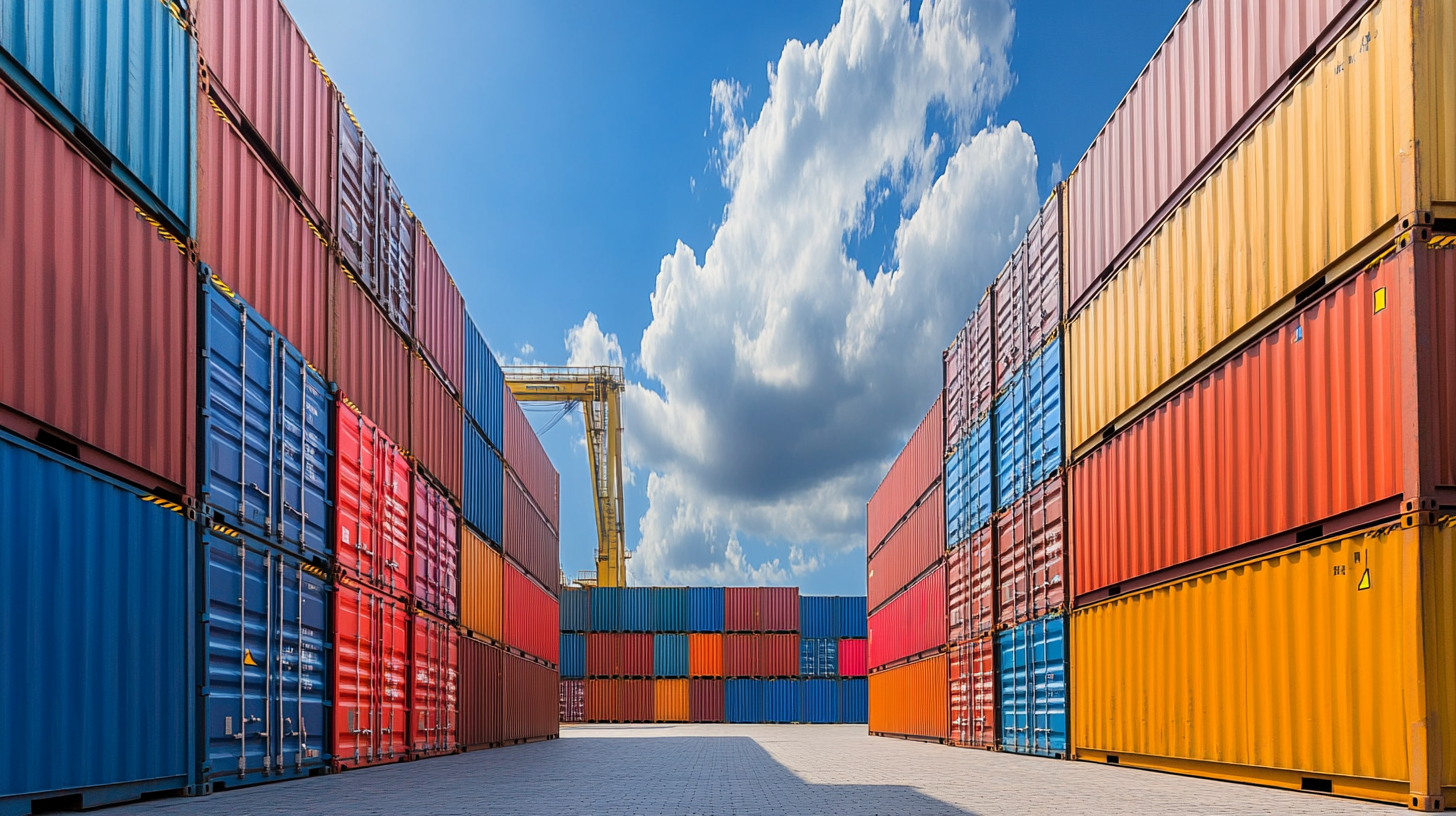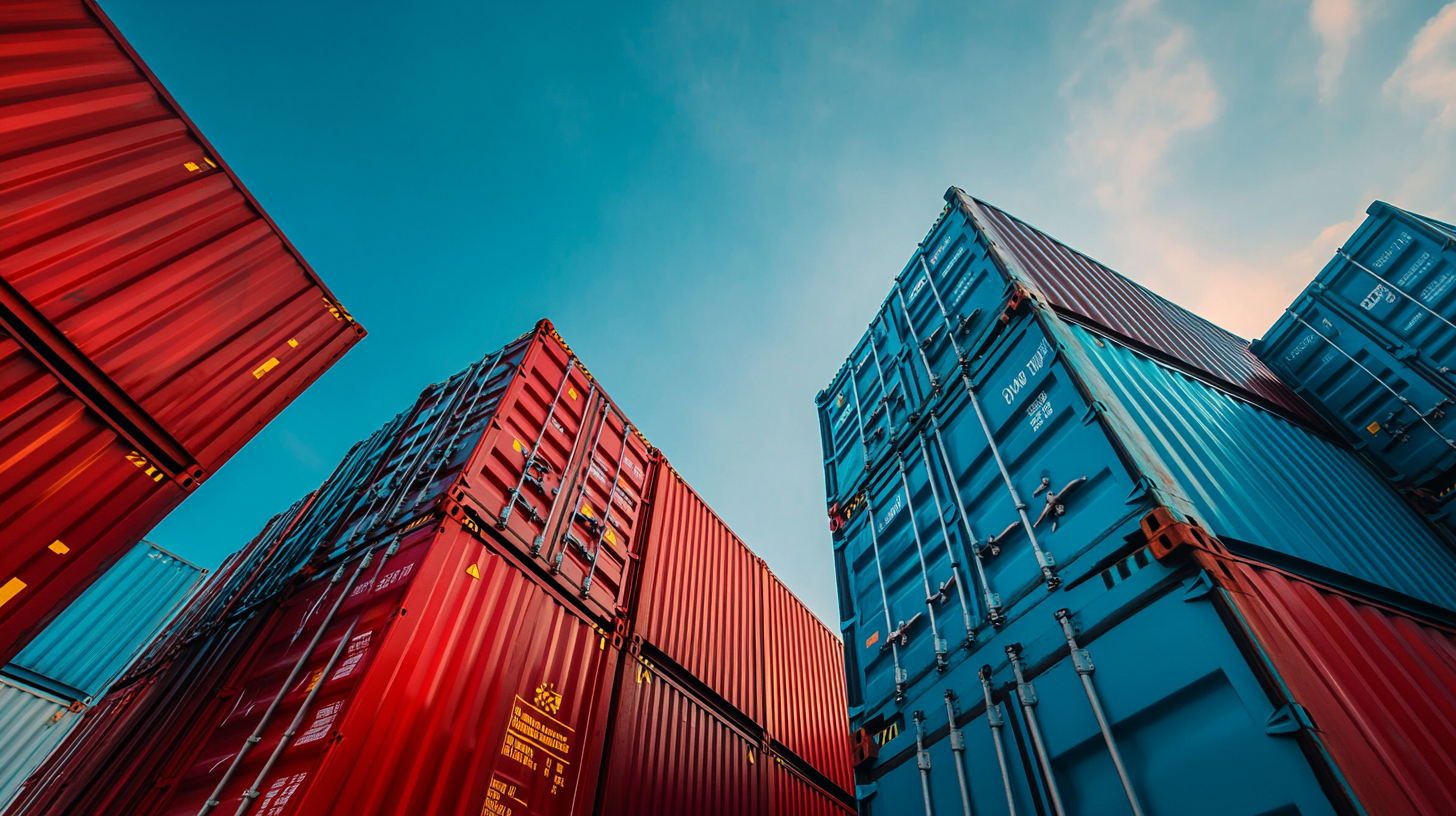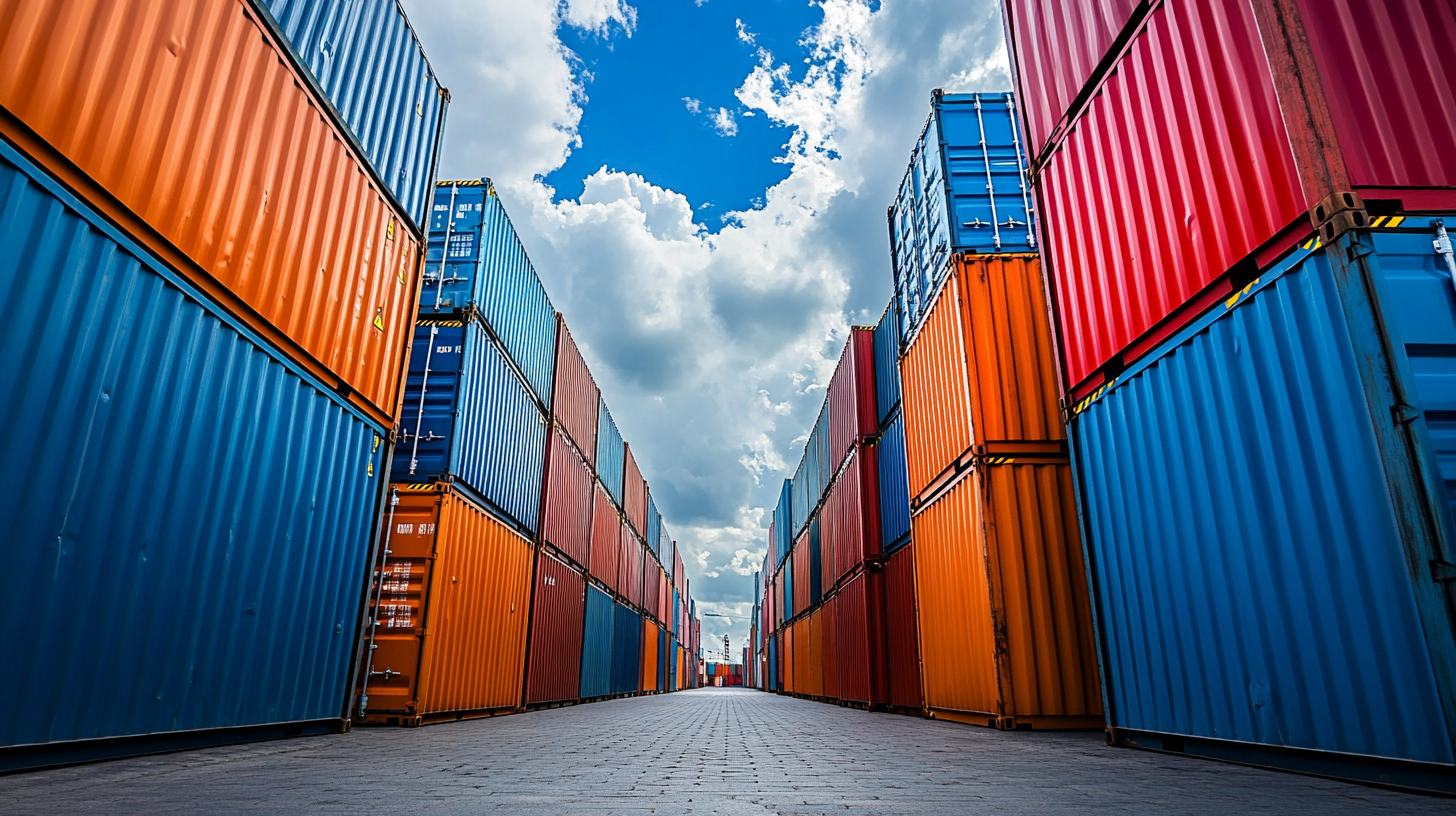In the ever-evolving world of global trade, the importance of understanding import and export certifications cannot be overstated, particularly for businesses utilizing Storage Container Storage Units. According to a report by the International Organization for Standardization (ISO), compliance with international standards not only streamlines logistics but also enhances product quality and safety. The storage container industry is booming, with a projected growth rate of 8.2% annually over the next five years, as highlighted by multiple market research studies. With such significant growth, navigating the complex landscape of certifications is crucial for businesses aiming to leverage the full potential of Storage Container Storage Units. This blog will explore the various certification types necessary for safe and compliant operations, empowering businesses to make informed decisions while successfully navigating import and export requirements.

Import and export certifications are critical for businesses involved in the trade of storage containers. According to a report by the World Trade Organization, understanding the regulatory landscape can lead to significant trade efficiencies, with companies that navigate these certifications effectively reporting up to a 25% reduction in compliance costs. Certifications often specify standards related to safety, sustainability, and quality, ensuring that storage containers meet international trade requirements. Compliance with these regulations not only helps prevent costly delays in shipment but also enhances the reputation of businesses in the global market.
For example, the International Organization for Standardization (ISO) has established guidelines that storage container manufacturers must follow to ensure their products are suitable for export. Containers that meet ISO specifications are more likely to be accepted across different countries, as they assure safety and durability. Furthermore, compliance with environmental regulations can lead to expansion opportunities in markets that prioritize eco-friendly practices. According to a study by the International Trade Centre, businesses that hold relevant certifications can experience a 15% boost in their market competitiveness. Understanding and adhering to these certifications is essential for businesses looking to thrive in the international storage container trade.
When it comes to logistics and supply chain management, the importance of certified storage containers cannot be overstated. These containers are designed and tested to meet stringent safety and quality standards, making them essential for transporting a wide range of goods. From perishables that require temperature control to hazardous materials that need special handling, certified storage containers ensure that products reach their destination in optimal condition. Industries such as food and beverage, pharmaceuticals, and chemicals rely on these containers for their operations, underscoring the pivotal role they play in global trade.

Tips: When selecting a certified storage container for your logistics needs, always verify the certification labels and documentation. This will guarantee compliance with relevant regulations and standards. Additionally, consider the container's insulation and durability to suit specific product requirements.
Moreover, the versatility of certified storage containers allows them to be utilized in various applications beyond traditional shipping. For instance, they can be used as temporary storage solutions during transitions between locations or as mobile offices in remote job sites. This adaptability provides businesses with creative options for managing their logistics demands efficiently.
Tips: Always assess the specific needs of your operation before choosing a storage solution. Investing in high-quality, certified containers can save costs related to damages and delays in the long run.
Obtaining import certifications for storage containers is a crucial step in ensuring compliance with international trade regulations. The first step in this process is to identify the type of certification required for your specific containers. This often depends on factors such as the materials used in construction, the intended use of the containers, and the destination country’s specific import regulations. Researching the requirements on the official government websites and consulting with trade experts can provide clarity.

Once you have identified the necessary certifications, the next step is to gather the required documentation. This typically includes detailed specifications of the containers, safety compliance certificates, and proof of quality assurance processes. After assembling these documents, you can submit your application to the relevant authorities, which may include local customs offices or national import agencies.
It’s vital to ensure that all information is accurate and complete to avoid delays. Following up on your application and addressing any additional information requests promptly will facilitate a smoother certification process, ultimately ensuring your containers meet the standards needed for seamless importation.
When dealing with storage container storage units, understanding export regulations is crucial for compliance and operational efficiency. According to the International Trade Centre, in 2022, the global trade in logistics services accounted for over $4 trillion, highlighting the importance of maintaining adherence to regulatory frameworks. Companies must navigate various documentation requirements, including certifications specific to the type of goods being stored, which can vary significantly by country. Failure to comply can lead to severe penalties and delays, directly impacting a business's bottom line.
Furthermore, research from the World Bank indicates that customs-related obstacles can inflate overall trade costs by as much as 24%. This emphasizes the need for businesses to invest in training staff and utilizing technology that ensures all export certificates and compliance measures are in place. Regular audits and updates to compliance practices can help prevent costly mistakes that could arise from fluctuating regulations. As international trade continues to expand, the importance of robust compliance mechanisms in storage solutions becomes increasingly vital for businesses aiming for seamless operations in the global marketplace.
In various industries, certified storage units play a pivotal role in ensuring compliance and safety while optimizing operational efficiency. For instance, the food and beverage sector has successfully utilized temperature-controlled certified storage containers to maintain the integrity of perishable goods. A case study showcasing a leading organic food producer highlighted how these certified units not only met stringent safety regulations but also facilitated the rapid scaling of their production processes. By implementing certified storage solutions, they enhanced their supply chain reliability and reduced waste, ultimately leading to a significant improvement in profitability.
Another compelling example comes from the pharmaceutical industry, where the need for stringent storage conditions is paramount. A prominent pharmaceutical company adopted certified storage containers designed specifically for temperature and humidity control. This decision was driven by the need to comply with international regulations and maintain the efficacy of their products. The result was a seamless integration of certified storage solutions that minimized the risk of contamination and ensured the medications remained safe and effective. This case illustrates how industries reliant on strict compliance standards benefit immensely from certified storage units, creating not just operational advantages but also enhancing product trust and customer confidence.
| Industry | Certification Type | Storage Unit Type | Benefits | Case Study Overview |
|---|---|---|---|---|
| Food & Beverage | HACCP Compliance | Reefer Containers | Temperature Control, Food Safety | Implemented certified reefer containers improved food safety compliance by 30%. |
| Pharmaceuticals | GMP Certification | Insulated Storage Units | Regulatory Compliance, Product Integrity | Certified insulated units ensured product integrity during transport and storage. |
| Oil & Gas | ISO 9001 Certification | Heavy-Duty Containers | Durability, Enhanced Safety | Utilization of certified heavy-duty containers reduced incidents by 40% in the field. |
| Construction | OSHA Compliance | Portable Storage Units | Safety, Easy Access | OSHA compliant storage units improved site safety scores significantly over time. |
| Technology | CE Marking | Electronics Storage Containers | Quality Assurance, Market Compliance | CE marked containers streamlined storage processes, enhancing quality control. |